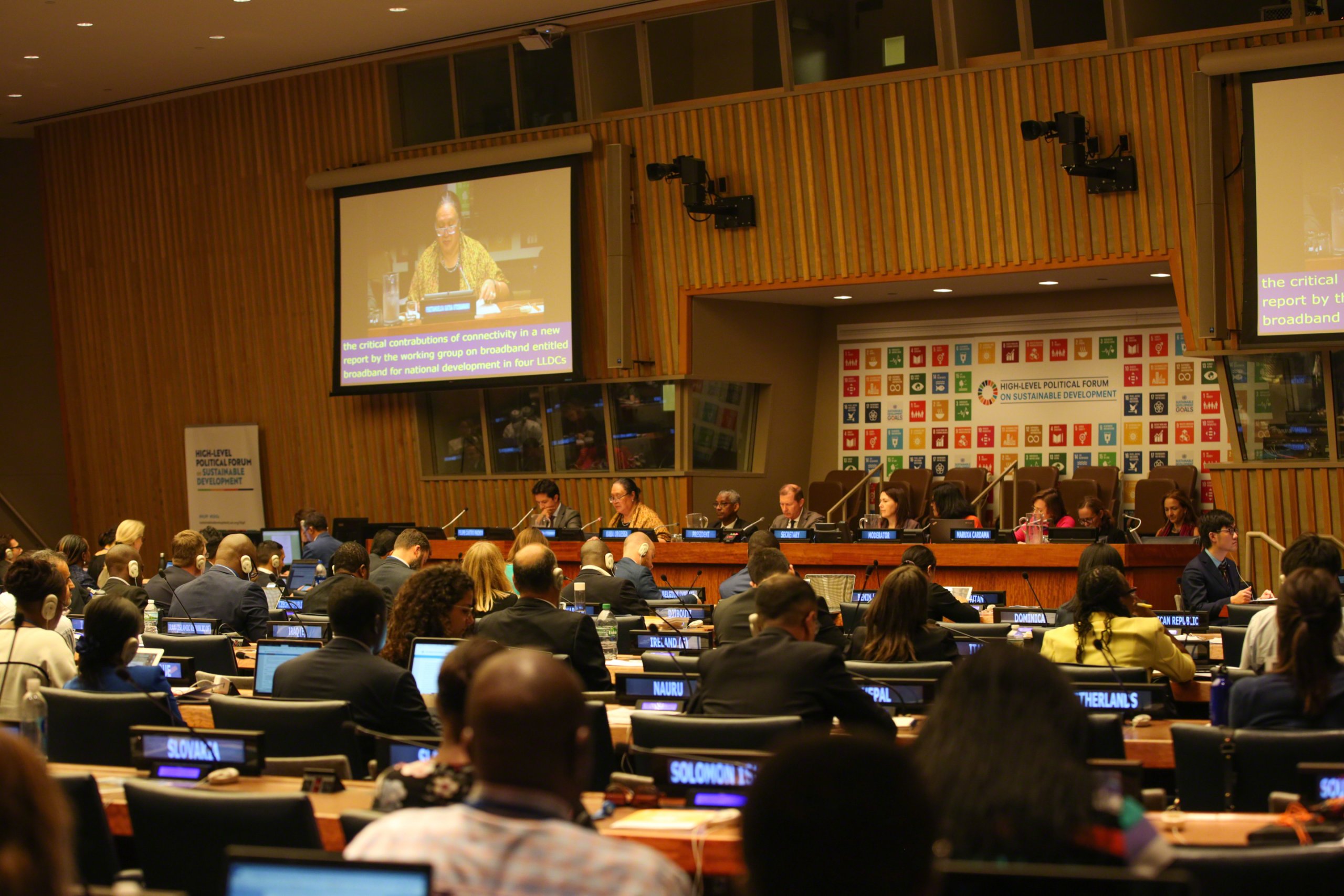Susan Parnell of the University of Bristol delivered the statement on behalf of the Science and Technology Major Group.

On Wednesday, 11 July, the UN’s High-Level Political Forum on Sustainable Development reviewed progress on achieving Sustainable Development Goal 11 on cities. Susan Parnell of Bristol University and the African Centre for Cities delivered the statement on behalf of the Science and Technology Major Group. Read on for the full statement below.
Thank you very much Mr Moderator. Distinguished Delegates: The Scientific and Technological Community – co-organized by the International Science Council (ISC), and the World Federation of Engineering Organizations (WFEO) – greatly welcomes the theme for the 2018 HLPF and underlines the important role of science and engineering in a transformation to sustainable and resilient societies. Today we reinforce the need for a strong science/policy interface in achieving the Sustainable Development Goals and Agenda 2030, including consolidating and expanding the role of science and technology into areas of sustainable development now covered by the 2030 agenda, in particular on the question of cities and human settlements.
The complexity and pace of urbanisation is both a challenge and opportunity, demanding strategic global, national and local response. The twelve years we have to achieve the Sustainable Development Goals will see a fundamental transition, from a majority urban world to a predominantly urban world: this is a common urban world, where cities are increasingly connected to each other ecologically, economically and socially. The urban transition affects every aspect of sustainable development and highlights the interconnection between the goals. An inclusive city is a safe city. A prosperous city is a healthy city. And a resilient city is one that takes care of its most vulnerable.
The hallmark of the SDGs is their interconnectedness. Meeting SDG 11 is core, but only part of the 2030 urban development challenge. Scientists acknowledge the links between goals and the value of producing joined-up urban knowledge that straddles disciplines and crosses the intellectual and governance traditions of different geographical regions. Recognizing the reality of complexity and fragmentation in advancing the ambitious 2030 Agenda at the city scale, the science and technology group are committed to supporting better data analysis and the evidence-based prioritization and innovation that will be needed to scale up sustainable development actions.
Globally we need expanded urban science capacity – building technical, institutional, and community solutions; the World Federation of Engineering Organizations and the International Science Council provide good examples of technical and community capacity building; many nation states also have good science policy platforms and ambitious skills development that will help advance SDG 11- but as this is a new domain of sustainable development commitment and city populations are rising, more is required.
Facing the challenges of the urban revolution and advancing the SDG 11 will require more than one mind or a single professional skills set — the innovation required needs us to work together, to make better use of the knowledge we have, produce new information on hidden aspects of urban life and, critically, foster collaboration between different cities and between cities, nations and other urban stakeholders to provide credible evidence for decision making and enable better learning and planning.
The scientific community, led by the International Science Council and the World Federation of Engineering Organizations are, in partnership with others, committed to continue to push the boundaries of knowledge around inclusive, safe, resilient and sustainable communities.
The scientific community is here to provide robust and actionable knowledge where it is most needed. We call on governments, civil society, the business community and all stakeholders to join in partnership and start a dialogue to make sure knowledge will be used efficiently and effectively to make the decisions that will safeguard human settlements for future generations.
Thank you.